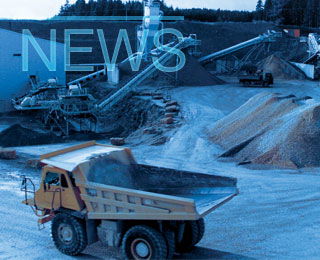Cement sales in Brazil saw a 21.4 per cent hike to 5.8Mt in September 2020 when compared with September 2019, according to SNIC, the country’s cement association. Sales per working day were 250,500t, up 18.5 per cent YoY and 2.5 per cent MoM.
The key market of the southeast showed a 17 per cent YoY uptake in sales to 2.67Mt while in the northeast, the country’s second-largest cement market, sales were up 30.1 per cent to 1.229Mt. In the south deliveries were up 15.3 per cent YoY to 884,000t while in the central-west region they advanced 27.2 per cent YoY to 702,000t. The north saw an 32.1 per cent YoY uptick in sales to 276,000t.
In the January-September 2020 period total cement sales in Brazil reached 44.6Mt, up 9.4 per cent when compared with the equivalent period in 2019. Growth was robust in the northeast and central-west regions, where sales reached 9.118Mt (+14.7 per cent) and 5.1Mt (+12.7 per cent), respectively when compared with the 9M19. In the north sales increased 9.1 per cent YoY to 1.919Mt while the offtake in the south and southeast advanced by around seven per cent YoY to 21.078Mt and 7.245Mt, respectively.
The government’s used of emergency aid in the direct purchase of construction inputs, including cement, has supported civil construction. In addition, people continue to invest in improving their homes with retail sales of building materials between March-September 2020 showing a 15 per cent advance.
"We note the stability of the cement supply, even though the activity has been subjected to a huge and unexpected pressure of demand, especially since June. It is essential that investments in sanitation and the resumption of infrastructure works, activities of extreme importance for the cement industry, leave the drawing board and fulfil, once and for all, the expected growth agenda of the country," said SNIC President, Paulo Camillo Penna.
The cement industry is also looking forward to the resumption of the government’s new housing project, "Casa Verde Amarela", which should leverage the real estate market more strongly, as well as the resumption of important infrastructure works and projects subsequent to the approval of the new sanitation legal framework.
